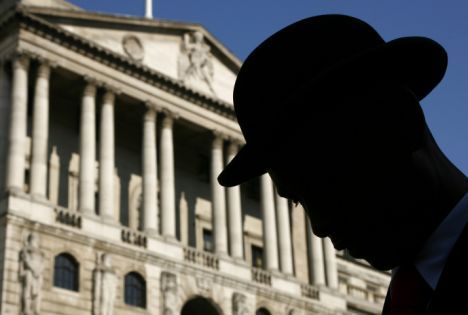 The City of London’s financial market gurus threw their toys out of the pram again this
morning, following the US Federal Reserve’s decision last night not to launch more quantitative easing. The stock markets have slumped as a result.
The City of London’s financial market gurus threw their toys out of the pram again this
morning, following the US Federal Reserve’s decision last night not to launch more quantitative easing. The stock markets have slumped as a result.
Why aren’t they happy? Even Bank of England research admits that QE gives the stock market a temporary lift (very good for year-end bonuses) at the cost of higher inflation.. That’s why traders want it, but central banks like the Fed and the Bank of England are reluctant.
But it looks like conservatives are now succeeding in preventing more QE in the US. The US Congress Republican leadership yesterday issued a joint statement calling on the Federal Reserve to “resist further extraordinary intervention in the U.S. economy”. And Jeffrey Lacker, one of the leading hawks on the Fed, told the FT:
My sense is that more monetary stimulus at this point would likely show up almost entirely in higher inflation with very little constructive influence on growth.”
That seems to me to be a statement of the obvious: QE only delivers inflation (and hence lower living standards), rather than growth and jobs.
Indeed, Fed chairman Ben Bernanke originally proposed QE back in 2002 as a cure to falling inflation, not weak growth. And the Bank of England’s Monetary Policy Committee introduced it in 2009 “in order to boost nominal spending and thus help achieve the 2 per cent inflation target”.
The question is: does George Osborne seriously believe in opposition to his US counterparts that more QE will lead to more growth? Or is he just reaching for that lever because it’s the easiest one to pull? The quality of debate in America is far better than in Britain, where there is almost no parliamentary discussion about the merits and risks of more QE. On this occasion, the US Republican leadership should be seen as an example for UK Conservatives to follow.
Bounderby is the pseudonym of a City financier who occasionally despairs at the behaviour of his clients.






Comments